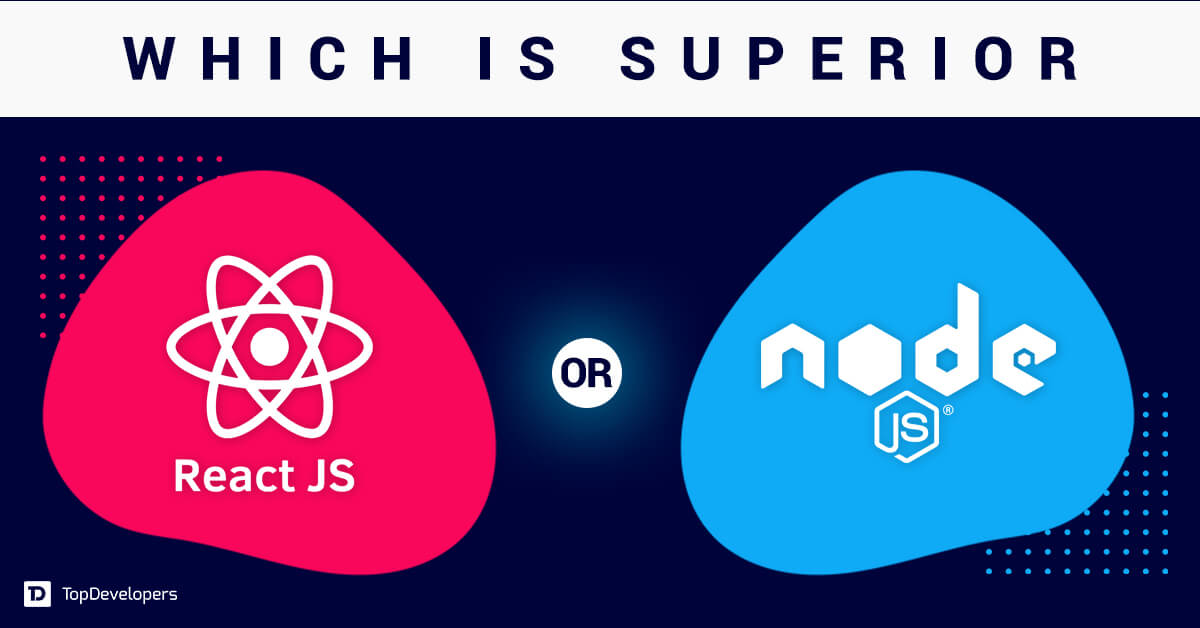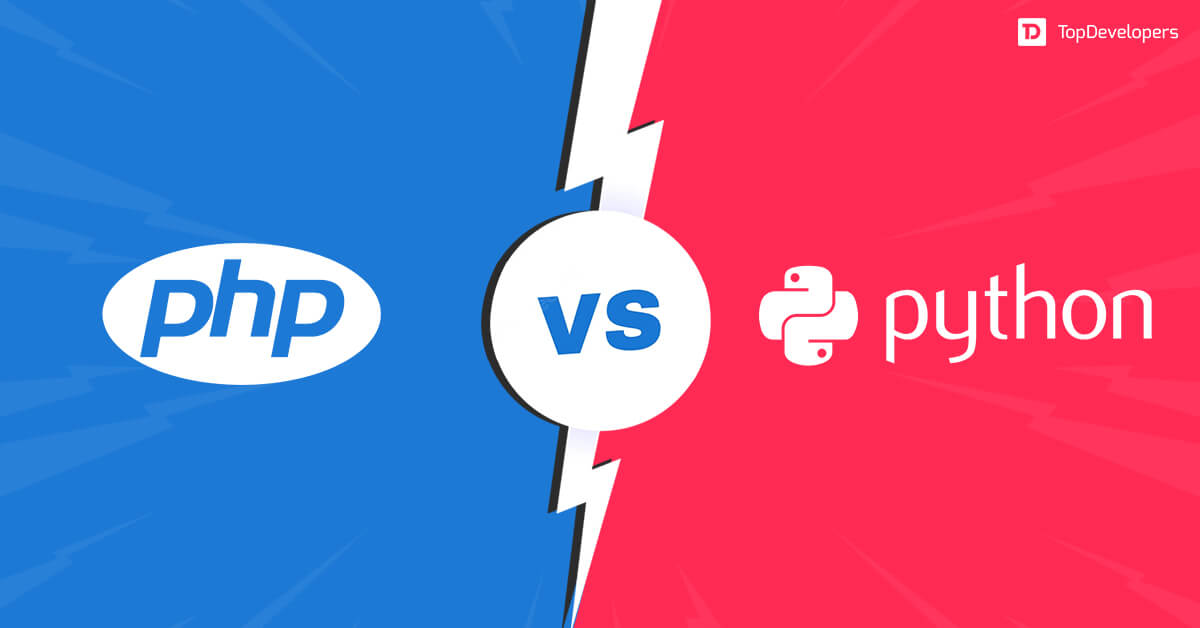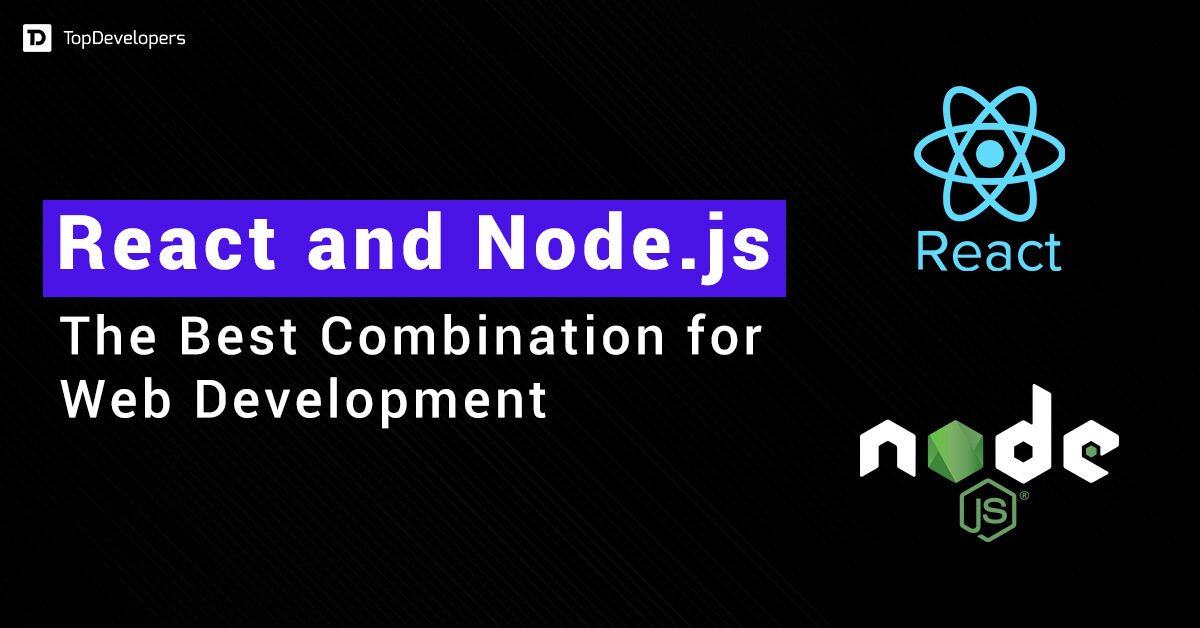
The web development landscape has constantly grown and evolved over the years. For two decades, people have stuck to the classics, PHP for backend development and JavaScript technology for frontend development. Now, technological progress has changed the game. Javascript framework- Node.JS stands out as the best option for server-side development and gained mainstream in the development world.
As Node.JS started capturing a large market share, PHP also evolved as a powerful back-end programming technology. The technology war between these two back-end development buddies makes it difficult to choose the one technology.
In this blog, we will understand Node.JS and PHP technology in brief, and view the detailed comparison of the two web development frameworks that clear up the confusion.
Table of Contents
What is Node.JS?
Node.JS introduced in 2009 is a vital and crucial contribution to the world of JavaScript. It is an open-source runtime environment that helps in running JavaScript on the server side of a web application with non-blocking I/O operations, asynchronous nature, and others. Leveraging the capabilities of Node.JS, SPAs (single-page applications), I/O intensive apps, and DIRT (Data Intensive Real-time Applications) are built. Netflix, PayPal, and eBay are a few big brands using Node.JS for backend development. Skilled Node.js developers have a knack for opting for this to build a more secure and efficient solution.
Let’s uncover the benefits that node.js development companies bring to businesses while experimenting with node.js features.
- It is based on JavaScript, which makes it easy to learn.
- The fixed architecture eliminates the dependencies problem.
- Ensure high scalability and speed for both project development and execution.
- Its asynchronous processing works well for real-time I/O-sensitive applications.
- Having the same language at the front end and back end facilitates easier code maintenance.
- NPM libraries and packages enable faster Node.JS development.
What is PHP?
PHP is one of the oldest languages in the market. PHP, which is abbreviated as Hypertext Preprocessor. From the beginning, PHP remained a primary choice to develop robust and scalable web apps. With a series of updates, the technology has matured and is stable for web app development. Popular websites like Tumblr, Facebook, BBC, and VK. are made using PHP.
With the help of top PHP development companies, businesses will avail of the PHP features for their upcoming project.
- PHP code is highly portable and easy to deploy, and easier to maintain as well.
- It works very well with Linux OS, Apache Web server, and MySQL database.
- Easy learning curves make the programming language good for beginners.
- PHP’s packages, libraries, and modules are tailored to fit every development need.
- The server-side solution helps in avoiding client-side code overloading.
PHP vs Node.JS- the one-to-one comparison
PHP and Node.JS are both popular technologies for web development, but they have different characteristics, strengths, and use cases.
Let’s see in the Node.JS Vs. PHP battle, which is the best in various aspects of web development:
Ease of coding
Before using any technology or programming language, developers often look for syntax and ease of use, which helps in writing the code easily.
PHP is a scripting language specifically designed for web development. It has a Programming language C-like syntax and is embedded in HTML, which is simple to understand. So, PHP is relatively easy to learn which makes it accessible for beginners.
Node.JS uses JavaScript, a language widely used for both frontend and backend development, enabling developers to use the same language across the entire stack. However, asynchronous programming concepts might present a steeper learning curve for newcomers.
Result: PHP wins the PHP Vs. Node.JS battle regarding coding.
Performance
A high-performance website that can handle the increasing number of requests without any glitches- is in demand. It requires using robust technology for backend development. Let’s see which is better in speed war PHP or Node.JS.
Traditionally, PHP’s performance was considered slower due to its synchronous, blocking nature. It can handle only one request at one time which makes it inefficient. However, recent improvements and technologies like PHP-FPM have enhanced its performance.
Node.JS is known for its high-performance capabilities due to its asynchronous, non-blocking event-driven architecture. It’s particularly well-suited for handling a large number of requests concurrently. This way server can pass multiple requests simultaneously which makes Node.JS efficient in handling a large number of requests.
Result: Node.js aces when the performance parameter is compared with php.
Scalability
Website scalability is important for businesses as the growing popularity and number of users require scaling website resources to accommodate and handle the users’ requests. Here architecture plays a critical role.
Scalability can be challenging with PHP, especially for handling a massive number of concurrent connections. The multi-threaded blocking architecture requires handling each thread individually which makes PHP inefficient. However, techniques like load balancing and caching are often used to mitigate this.
On the contrary, Node.JS excels in scalability, thanks to its single-threaded, non-blocking architecture that allows it to efficiently handle many connections without creating new threads for each one.
Result: PHP lags behind when the question pops up regarding which is better between PHP and Node.JS.
Ecosystem of Libraries
Technologies packed with several pre-built libraries and frameworks facilitate faster and easier development. let’s see where PHP and Node.JS stand.
PHP has a large number of libraries and frameworks like Laravel, Symfony, and CodeIgniter that facilitate rapid development and offer a wide range of functionalities. Node.JS has a vibrant ecosystem with packages available through NPM (Node Package Manager). Popular frameworks include Express.js for building web applications and libraries for various functionalities.
Result: One can not distinguish between PHP and Node.js as a winner when differentiating on the parameters of the Libraries that one has.
Community Support
Comprehensive documentation and community support help a ton for easily learning the specific technology and getting issues resolved off the bat.
PHP has a large and mature community, with extensive documentation and a wide range of resources available, that’s excellent for getting answers to problems.
Node.JS has a rapidly growing community, and the availability of npm packages provides developers with a wealth of tools and resources. Online documentation is a great way to get detailed information.
Result: It’s a draw when the community aspect is compared in Node vs PHP.
Use Cases
Server-side development requirements also become a key factor in determining which technology supersedes the other.
PHP is commonly used for building dynamic web applications, content management systems (CMS), e-commerce platforms, and traditional server-rendered websites. It supports an array of platforms that make it easy to integrate with legacy systems.
Node.JS is well-suited for real-time applications like chat applications, online gaming, collaborative tools, streaming applications, and APIs where high concurrency and low latency are crucial. The support for non-relational databases and libraries that facilitate working with data in the NoSQL database enables app development that requires scalable data storage.
Result: Node.JS and PHP; Both are performing to the par.
Hosting and Deployment
Hosting and deploying the website on servers, be it traditional servers or cloud-based servers, it’s a tedious, time-consuming, and costly endeavor.
PHP applications are typically hosted on traditional web servers like Apache and Nginx, which are configured to handle PHP scripts. PHP CMS enables web app deployment in a short time.
Node.JS applications are often deployed using serverless platforms, containerized environments, or cloud services that support Node.JS runtime. Node.JS also provides a solution for app deployment followed by high compatibility with a range of hosting service providers.
Result: PHP and Node.JS, Both are optimal solutions.
Which technology is the best: Node.JS or PHP?
Both languages- PHP and Node.JS rule the web development space with their pros and cons. In server-side or backend development, the choice between PHP and Node.JS hinges on the web development project’s specific needs. PHP offers familiarity, and mature PHP frameworks, and is well-suited for traditional web applications. Node.JS excels in handling real-time applications and scenarios requiring high concurrency.
Consider factors like project requirements, scalability, and performance needs to make an informed decision. Also, you can consult website development companies to know which way to go- Node.JS development or PHP development for your next project development.
 Avantika Shergil
| Aug 31, 2023
Avantika Shergil
| Aug 31, 2023
Avantika Shergil is a technology enthusiast and thought leader with deep expertise in software development and web technologies. With over 8 years of experience analyzing and evaluating cutting-edge digital solutions, Avantika has a knack for demystifying complex tech trends. Her insights into modern programming frameworks, system architecture, and web innovation have empowered businesses to make informed decisions in the ever-evolving tech landscape. Avantika is passionate about bridging the gap between technology and business strategy, helping businesses build customized software and website, and understand about different tools to leverage effectively for their ventures. Explore her work for a unique perspective on the future of digital innovation.








